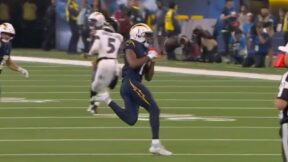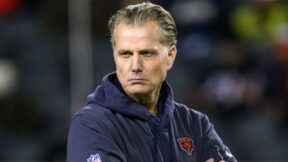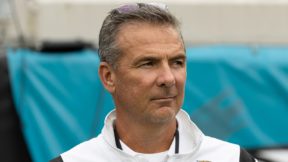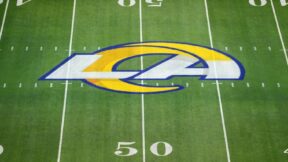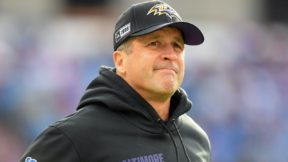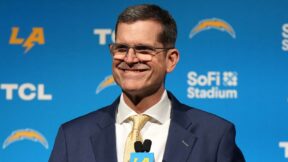Ranking the best NFC East quarterbacks of all-time
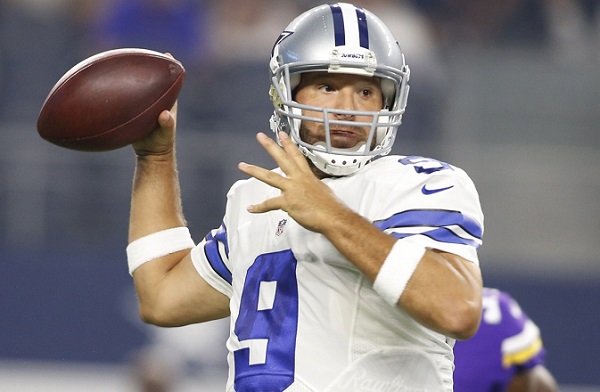
Who are the top NFC East quarterbacks of all-time? The NFC East came into existence with the AFL-NFL merger and contains some of the oldest and most famous franchises in the league. To honor the 50th season for the division, I am going to identify the top signal callers to play in the division.
These rankings only consider quarterbacks during times they played in the NFC East (1970 to present). It does include players from the former St. Louis/Phoenix/Arizona Cardinals who also played in the division. Because it only includes the NFC East period, though, it excludes some Hall of Fame quarterbacks like Sonny Jurgensen and the Giants’ version of Fran Tarkenton, and all quarterbacks who preceded them.
To help compile the list, I looked at both rushing and passing stats, league-adjusted for era, and ranked the top 150 regular seasons and top 50 postseasons by NFC quarterbacks. So the list includes both regular season performance and postseason fame and accomplishment.
15. Nick Foles, Eagles
Nick Foles? Well, consider that the NFC East has had three different quarterbacks win a Super Bowl title (for three different franchises) who did not become starters until late in the season. Compared to Doug Williams and Jeff Hostetler, though, Foles also has played more games in the NFC East (14 career regular season starts for Williams, 25 for Hostetler), has better league-adjusted stats, and had a better season (2013, with a 27 TD to 2 INT year) than either of them had outside of the Super Bowl runs.
If you can divorce Foles from his career outside Philadelphia, he makes this list on his excellent season in 2013, two times coming off the bench to appear in the playoffs, and postseason accomplishments. Carson Wentz or Dak Prescott would likely occupy this spot in the near future but for now, it’s Foles.
Key Stats: 32 GS (21-11), 7.5 YPA, led league in YPA in 2013, 4-2 record in playoffs with Eagles
14. Neil Lomax, Cardinals
Neil Lomax toiled on some mediocre Cardinals teams for eight years, but he was an above-average quarterback for most of that time and had his career ended prematurely at age 29 by a hip injury. He made two Pro Bowls, and finished third in passing touchdowns in both of those seasons. His only playoff appearance came in the strike-shortened 1982 season, when he threw for 385 yards in a loss to the Packers.
Key Stats: 101 GS (47-52-2), 7.2 YPA, 136 career passing touchdowns, led the NFL in passing yards in 1987
13. Randall Cunningham, Eagles
Cunningham’s placement on this list may be controversial, with some thinking the “Ultimate Weapon” should be higher. But if we look just at his Eagles career, Cunningham’s efficiency numbers are kind of underwhelming. He makes it here because of his rushing ability, but he also led the league in sacks in all but one season where he was the main starter in Philadelphia, and the result was a quarterback who was below the league average in net yards per pass in every season as an Eagle. The rushing value offset that and made him an above average quarterback for awhile, until injuries sapped him. The 1990 season, where he rushed for nearly 1,000 yards while averaging 7.5 yards per pass, was his best (before the 1998 season with the Vikings).
Key Stats: 110 GS (64-45-1), 6.8 YPA, 4,482 career rushing yards in Philadelphia. 1-4 record in postseason with Eagles.
12. Mark Rypien, Redskins
Mark Rypien’s star burned brightly and then burned out by age 31. In 1991, he had one of the best seasons of the last thirty years, and was selected second-team All-Pro as Washington won their third title in nine years. He took control of the Washington offense for the 1989 season and was an ideal fit for the vertical passing game. He went 42-20 as a starting quarterback with Joe Gibbs as head coach and only 5-11 for the rest of his career.
Key Stats: 72 GS (45-27), 7.2 YPA, Super Bowl MVP after 1991 season, 5-2 in playoffs
11. Ron Jaworski, Eagles
Ron Jaworski begins our run of NFC East quarterbacks turned broadcasters. From 1978 to 1981, Jaworski was a very good quarterback for the Eagles. He had a stellar 27 TD to 12 INT ratio in 1980 as the Eagles advanced to their first Super Bowl. From 1982 onward, Jaworski threw nearly as many interceptions as touchdowns and the Eagles had a 22-36-1 record in games he started.
Key Stats: 137 GS (69-67-1), 6.9 YPA, 175 TD passes with Eagles, 1980 Pro Bowler
10. Billy Kilmer, Redskins
Billy Kilmer had one of the most unique careers in NFL history. He began as an all-purpose back who ran for nearly 1,000 yards and scored 15 rushing touchdowns in his first two seasons in San Francisco. He then got an opportunity to play quarterback for the expansion Saints. In 1971, George Allen brought him in at age 32, he supplanted Hall of Famer Sonny Jurgensen as a starter, and became the face of the “Over the Hill Gang.” Washington went to the postseason five times in the 1970s with Kilmer as the starter, though the only year they won a playoff game was after the 1972 season when they advanced to and lost in the Super Bowl against the undefeated Dolphins.
Key Stats: 74 GS (50-23-1), 6.9 YPA, Pro Bowler in 1972 when he led the NFL in touchdown passes, with 19
9. Jim Hart, Cardinals
Jim Hart was the starting quarterback for the St. Louis Cardinals for 15 seasons, stretching from the 1960s to the early 1980s. His peak was in the mid-’70s, when the Cardinals won 10-plus games three different times, made the playoffs twice, and he led the league in fourth-quarter comebacks in consecutive seasons.
Key Stats: 180 GS (87-88-5), 6.8 YPA, four straight Pro Bowls from 1974 to 1977
8. Danny White, Cowboys
Danny White served as the Cowboys’ punter while waiting for his turn behind Roger Staubach. When he got the opportunity, the Cowboys continued their dynasty run, except they could not get over the hurdle and reach a Super Bowl with White at quarterback. The Cowboys went to the NFC Championship Game from 1980 to 1982 but lost all of them, including the famous game featuring Joe Montana to Dwight Clark for “The Catch.”
Key Stats: 92 GS (62-30), 7.4 YPA, 5-5 in postseason with Dallas including three NFC Championship Games


